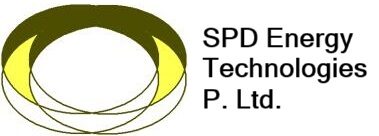Electrical Engineering
Electrical engineering focuses on the design and maintenance of systems that convert mechanical energy from diesel engines into electrical energy. Key components include:
- Diesel Generators: Convert mechanical energy into electrical energy.
- Transformers: Adjust voltage levels for efficient transmission.
- Switchgear: Protect and control electrical circuits.
- Electrical Cables: Transmit electrical power from generators to the load or mains.
Instrumentation Engineering
Instrumentation engineering involves the use of devices and systems to measure and control various parameters within the power generation process. Key elements include:
- Sensors and Transducers: Measure parameters such as voltage, current, frequency, temperature, and fuel levels.
- Control Systems: Use sensor data to regulate generator operations.
- Data Acquisition Systems: Collect and analyze data to optimize performance and ensure reliability.
Automation Engineering
Automation engineering integrates control systems to automate the operation of diesel generators, enhancing efficiency and reliability. This includes:
- Programmable Logic Controllers (PLCs): Automate control processes, such as starting and stopping generators, and managing load sharing.
- Distributed Control Systems (DCS): Manage complex operations across multiple generators.
- Supervisory Control and Data Acquisition (SCADA): Provide real-time monitoring and control of generator operations.
Synchronization and Load Sharing
Synchronization and load sharing are critical for the efficient operation of multiple diesel generators. This involves:
- Synchronization: Ensuring that generators operate in phase with each other and the mains. This is achieved using synchronization equipment that matches the voltage, frequency, and phase of the generators with the mains before connecting them.
- Load Sharing: Distributing the electrical load evenly among multiple generators. This is managed by load sharing controllers that adjust the output of each generator to ensure balanced load distribution.
Fuel Tank Farm Management
Managing a fuel tank farm involves monitoring and controlling fuel storage and supply to ensure continuous operation of diesel generators. Key aspects include:
- Fuel Level Monitoring: Using sensors to track fuel levels in storage tanks.
- Fuel Quality Control: Ensuring the fuel is free from contaminants and meets required standards.
- Automated Fuel Supply: Using automation systems to manage fuel transfer from storage tanks to generators, ensuring a steady supply.
Power Export to Mains
Exporting power to the mains involves connecting the generator output to the utility grid. Key considerations include:
- Grid Connection: Ensuring that the generator output matches the grid requirements in terms of voltage, frequency, and phase.
- Protection Systems: Implementing protective relays and circuit breakers to safeguard both the generators and the grid.
- Regulatory Compliance: Adhering to local regulations and standards for grid interconnection.


